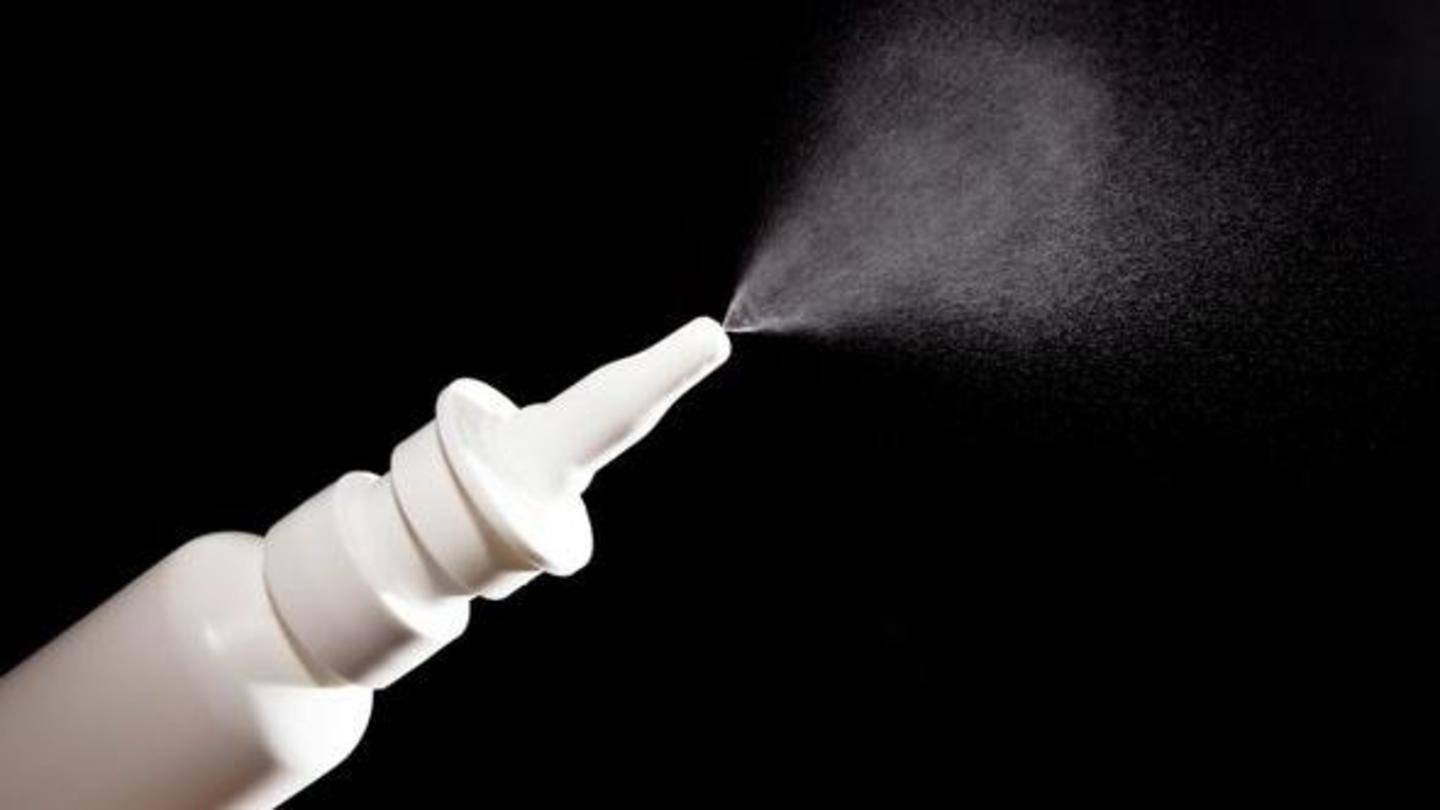
Can nasal spray vaccines stop the spread of COVID-19?
What's the story
Bharat Biotech's nasal spray vaccine for immunization against COVID-19 has been approved by the Central Drugs Standard Control Organisation (CDSCO).
It has been cleared for "restricted use" in people aged 18 years and above, in India.
Scientists believe that vaccines inhaled through the nose might stop the coronavirus in its tracks. But are they really effective? Let us find out.
Context
Why does this story matter?
India's vaccination coverage has crossed the 213 crore figure, and the country seems to have come out of the deadly grips of COVID-19. However, the country is still reporting roughly 5,000-7,000 cases daily.
Many people are fearful of injections, and nasal spray vaccinations will go a long way in removing hesitancy. They are also expected to be more effective than the current methods.
Mechanism
How do nasal spray vaccines work?
Thin mucous membranes line the cavities in the nose where the COVID-19 virus enters the body.
These vaccines can stimulate immune cells in these membranes and stop the virus from spreading further.
Vaccine makers hope that these inoculations will prevent even mild illness as the infection is stopped in its tracks, and transmission to others will be blocked. This phenomenon is called sterilizing immunity.
Reasons
Why are they better than vaccines currently in use?
The currently used vaccines are injected into muscles. They produce cells and antibodies which circulate through the bloodstream and kill pathogens.
However, their concentration in the nose and lungs is very low. By the time they journey there from the bloodstream, the virus infects the patient.
Meanwhile, mucosal vaccines trigger a whole-body immune response and act as guards at the site of the infection.
Problems
What are the hurdles in using mucosal vaccines?
Nasal spray vaccines might raise the risk of neurological complications, as the passage is in close proximity to the brain.
These sprays also have a complicated delivery method. They have to make their way up the nasal cavity without being sneezed out.
Once up, their ingredients have to pass through a thick barrier gel made of mucus and activate the immune cells locked within.
Promising
Do they induce sterilizing immunity?
While the data for human beings is unclear, the results are quite promising when it comes to animals.
In a Yale University study on mice, an intranasal booster after a dose of conventional vaccine triggered sterilizing immunity in them.
In another case, a vaccine with an influenza-like virus protected the rhesus macaques (Macaca mulatta) monkeys from COVID-19 infection.
Details
A brief look at Bharat Biotech's COVID-19 nasal vaccine
Hyderabad-based vaccine maker Bharat Biotech has created a ChAd36-SARS-CoV-S (Chimpanzee Adenovirus Vectored) recombinant nasal vaccine.
This is India's first intranasal vaccine for tackling COVID-19 and its phase III trials were successfully completed last month.
This cost-effective vaccine called iNCOVACC has been approved for restricted usage in emergency situations and will be launched here in "due course of time."